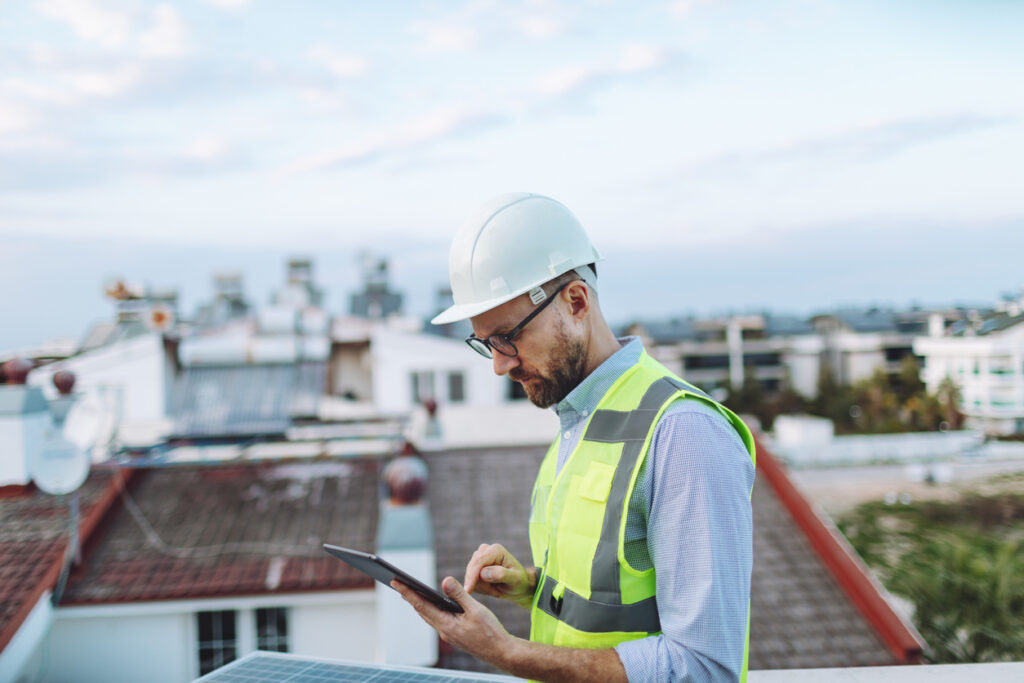Roofing projects demand meticulous attention to detail, precision in material selection, and a commitment to delivering long-lasting, resilient structures. Achieving excellence in roofing goes beyond craftsmanship—it requires robust quality control measures. Forensic roof testing emerges as a pivotal tool in the hands of roofers, offering a comprehensive approach to ensure the highest standards in every project.
The Foundation of Excellence: Understanding Forensic Roof Testing
Forensic roof testing is not a reactive measure but a proactive strategy to evaluate and ensure the structural integrity and longevity of roofing systems. Unlike traditional inspections, which focus on surface-level issues, forensic testing delves deeper into the root causes of problems. This in-depth approach provides a holistic understanding of the roof’s condition, allowing roofers to implement targeted and effective quality control measures.
Identifying Hidden Vulnerabilities
Forensic roof testing begins with a meticulous initial inspection, assessing the roof’s surface for visible signs of damage, deterioration, or potential weak points. However, its true strength lies in going beyond what meets the eye. Specialized techniques, including moisture detection and core sampling, are employed to uncover hidden vulnerabilities within the roofing system.
Moisture Detection: A Crucial Element
One of the critical aspects of forensic roof testing is the inclusion of specialized techniques to detect moisture within the roofing system. This is crucial in identifying areas that might be susceptible to leaks or water damage. Moisture, if left undetected, can compromise the structural integrity of the roof and lead to more extensive damage over time. By addressing moisture issues proactively, roofers can prevent costly repairs and ensure the longevity of the roofing system.
Core Sampling: Unveiling the Truth
A pivotal step in forensic testing involves core sampling, where small sections of the roof are extracted for analysis. These core samples provide a wealth of information about the condition of the roofing materials, including signs of degradation, moisture content, and structural integrity. This detailed analysis forms the basis for informed decision-making in quality control measures.
Elevating Quality Control
The overarching goal of forensic roof testing is to elevate the standards of quality control in roofing projects. By delving into a comprehensive examination of roofing materials through advanced techniques such as core sampling, non-destructive testing, and microscopic evaluations, the aim is to provide roofers with a wealth of detailed information. This goes beyond the surface level, uncovering hidden defects, weaknesses, and potential vulnerabilities that may compromise the structural integrity of roofing systems over time. Armed with this additional layer of insight, roofers can make informed decisions, implement precise quality control measures, and ensure that their projects meet the highest standards of craftsmanship and durability.
Analysis and Evaluation
The data collected from core samples and non-destructive testing is meticulously analyzed. This involves assessing the condition of the roofing materials, identifying any signs of delamination, moisture infiltration, or other structural concerns. The analysis phase is where the foundation for quality control measures is laid. Roofers can make informed decisions based on the comprehensive evaluation of the roof’s condition.
Root Cause Identification
One of the key objectives of forensic testing is to pinpoint the underlying causes of any issues detected. This could include factors like improper installation, material failure, or long-term wear and tear. By addressing the root causes, roofers can implement quality control measures that not only fix the immediate issues but also prevent future problems.
Recommendations and Remediation
Based on the findings, recommendations for necessary repairs or maintenance measures are provided. These are tailored to address the specific issues identified during the testing process. Quality control, in this context, involves implementing solutions that are precise, effective, and aligned with the unique challenges presented by the roofing system.
The Impact of Quality Control on Roofing
Early Detection of Issues
Quality control measures implemented through forensic roof testing allow for the early detection of issues. By uncovering minor problems before they escalate into major, costly repairs, roofers can adopt a proactive approach that saves businesses from potential financial strain.
Extending Roof Lifespan
Well-maintained roofs last longer. Routine inspections and quality control measures, guided by forensic testing, can significantly extend the life of a roofing system. This not only enhances the overall value of the property but also contributes to long-term cost savings.
Safeguarding Business Operations
A leaky roof can disrupt business operations. Regular inspections, supported by quality control measures, help identify potential weak points before they lead to leaks. This proactive approach ensures the smooth functioning of businesses without interruptions.
Preserving Property Value
A well-maintained roof adds significant value to a property. It enhances the aesthetic appeal and overall condition of business premises. Quality control measures, informed by forensic testing, contribute to the preservation of property value.
Energy Efficiency
A well-maintained roof is more energy-efficient. It helps regulate indoor temperatures, reducing the strain on heating and cooling systems. Quality control measures that address issues identified through forensic testing contribute to enhanced energy efficiency.
Raising Roofing Standards with CORE Forensics
In the pursuit of roofing excellence, quality control is non-negotiable. CORE Forensics stands at the forefront, offering a comprehensive suite of forensic roof testing services designed to elevate roofing standards. The detailed process, from initial inspection to root cause identification, ensures that quality control measures are precise and effective.
By partnering with CORE Forensics, roofers gain access to cutting-edge technologies and methodologies tailored for the intricate demands of the roofing industry. Our meticulous approach, particularly in microscopic evaluations, unveils imperceptible issues that could undermine the quality of roofing materials and installations. This wealth of information empowers roofers to proactively address potential defects, weaknesses, or deviations from quality standards. Forensic roof testing with CORE Forensics becomes a strategic investment for roofers, aligning with a commitment to excellence. Contact our team to get started.

